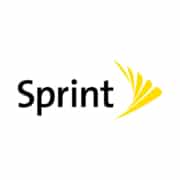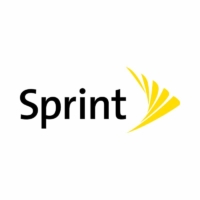Sprint Accelerator welcomes its first 10 startups to Downtown
After a christening by Sprint Corp. CEO Dan Hesse, the Sprint Mobile Health Accelerator officially kicked off its program last week by welcoming its first 10 startup tech companies — all new to Kansas City.
According to The Kansas City Business Journal, the three-month program, led by Boulder, Colo.-based Techstars, will feature a variety of health technology groups from around the country and one company from Australia. Sprint and the Techstars team filtered through hundreds of applicants from around the world before landing on the 10 companies. The participating companies aim to tackle wellness, chronic illness, animal and other health challenges through such tech solutions as hardware, software platforms, transformative services, big data and mobile applications, wrote reporter Bobby Burch.
According to The Business Journal:
In the last week, John Fein, the accelerator’s managing director, has helped orientate the companies to Kansas City, Sprint and Techstars. Fein, who co-founded the telephony company Omnemail and previously was senior project manager for OptumRx, the mail-service drug provider unit of UnitedHealth Group, said choosing the companies was a tough process.
“It’s an amazing class — it was a very competitive selection process,” Fein said. “We have a huge focus on the teams. We believe that for early-stage companies ‘team’ is often more important than product. These teams went though a rigorous selection process that involved multiple phone, video and in-person interviews. So those that made the cut, those top 10, are really the cream of the crop. They’re amazing teams.”
Each startup, which can receive up to $120,000 in funding, will have access to more than 80 mentors throughout the accelerator. To culminate the program, the 10 companies will pitch their companies to an audience of investors and business leaders from around Kansas City and the United States.
“The quality of the companies in our Sprint Accelerator program is outstanding,” Kevin McGinnis, vice president of Pinsight Media+ and the Sprint Developer program, said in a release.
“Sprint is proud to be part of the innovation movement in the healthcare space. The impact these companies can have on so many people in both the technology and healthcare industries is tremendous.”
The inaugural class of 10 startups include:
- Akibah, San Jose, Calif.
- Fitbark, New York City
- Lifeline Response, Chicago
- Medicast, Palo Alto, Calif.
- Ollo Mobile, Brisbane, Australia
- Prime, San Francisco
- Sickweather, Baltimore
- Symptom.ly, Salt Lake City
- Tenacity Health, Boston
- Yosko, Cambridge, Mass.
The companies aim to tackle wellness, chronic illness, animal and other health challenges through such technology solutions as hardware, software platforms, big data and mobile applications. For background, here’s more on the launch of the program, or to take a virtual tour of the innovative accelerator space, check out this photo gallery.
Now, on to the companies:
Akibah
Hometown: San Jose, Calif.
Founders: Haroon Ismail, Aaqib Habib, Fathi Abdelsalam
Hoping to offer diabetics an easier way to manage their malady, Akibah created a glucometer — a device to test glucose or blood sugar — built into a smartphone case. Easing the burden of hauling an additional device could be a lucrative idea, as more than 50 percent of the U.S. population is projected to become diabetic or pre-diabetic by 2020, according to a study by UnitedHealth Group Inc.
The company’s name was inspired by the Swahili proverb “Akiba Haiozi,” meaning “a person with foresight will always know prosperity,” according to the company’s website.
Fitbark
Hometown: New York City
Founders: Davide Rossi, Michael Chiang, Fabrizio Filippini, Arie Abecassis
Canines aren’t the best communicators, so Fitbark decided to help them and their companions out by creating a small device to track dogs’ activity. The implement attaches to a dog’s collar, logs its activity and thereby establishes a baseline of normal behavior. If one’s pooch displays unusual behavior — such as Max sleeping more than normal — the device sends a notification to one’s phone. Fitbark also can offer your dog breed-specific guidelines to see where her activity stands compared to other dogs.
Lifeline Response
Hometown: Chicago
Founders: Peter Cahill
Lifeline Response is a personal safety app that uses human reactions to respond to emergency situations by alerting authorities if the user is in need of help.
For example, say you’re leaving the office late and would like some added security. You turn on the app and place and keep your finger on the screen to indicate you’re safe. If someone attacks you — thereby forcing you to drop the phone — a 20-second timer countdowns to the launch of its alarm sequence. If a key isn’t entered to disarm the countdown, Lifeline notifies the authorities and one’s friends or families of the situation and provides the users’ location via GPS. One also can set a timer to trigger the system’s alarm sequence.
Medicast
Hometown: Palo Alto, Calif.
Founders: Sam Zebarjadi, Nafis Zebarjadi
Medcast is hoping to bring back doctor house calls with its web- and mobile-based app. Via its Doctors on Demand service, the service allows users to explain their symptoms to a doctor and arrange a visit within two hours.
Ollo Mobile
Hometown: Brisbane, Australia
Founders: Hugh Geiger, Ken Macken
Ollo Mobile created a specialized smartphone — the CloudPhone 3G that uses a cloud-based care system to monitor family member’s health and well being. In addition to offering voice-controlled dialing, the device captures lifestyle analytics to provide further insight into family member’s health. It also can detect falls and lack of motion, creates safe travel routes and notifies you when your family member arrives at home.
Prime
Hometown: San Francisco
Founders: Tyler Hayes, Owen Imholte, Will Imholte
Prime connects a user with their care providers to securely access personal health information and data. The service also allows one to make notes of health information for doctor or other health visits. The company has partnered with more than 200 providers to offer the service.
Sickweather
Hometown: Baltimore
Founders: Graham Dodge, Michael Belt, James Sajor
Sickweather uses Twitter’s and Facebook’s open application programming interface (API) to track and forecast illnesses in an area. The company tracks 23 sickness across the country and plots the illnesses on a map. The app can also notify you of when a specific bug is going around so one can better prepare. Allergies, common cold and fever are going around Kansas City on Friday, the service reports.
Symptom.ly
Hometown: Salt Lake City
Founders: Derek Bereit, Dillon Lee, Shane Willard
Symptom.ly uses its eAsthma Tracker technology to improve asthma patients’ care and reduce hospital readmission rates. The technology tracks and collects data from patients for insurers, doctors and patients to reduce the costs for care.
Tenacity Health
Hometown: Boston
Founders: Ron Davis, Hana Adeyama, Aleh Veraskouski
Tenacity uses peer pressure for good. The company creates wellness communities to reduce health care costs for businesses and other organizations by using social motivation to promote healthier workplaces.
Yosko
Hometown: Cambridge, Mass.
Founders: Andriana Nicolova, Javier Otin, Ashish Jha
Miscommunication between hospital staff can result in not only higher costs, but also deaths. It doesn’t help, either, that many hospitals still use antiquated technology to communicate such as pagers and paper charts. Yosko aims to improve communication amongst physicians, nurses and caretakers via mobile devices by coordinating patients’ health information, and updates it in real time.



